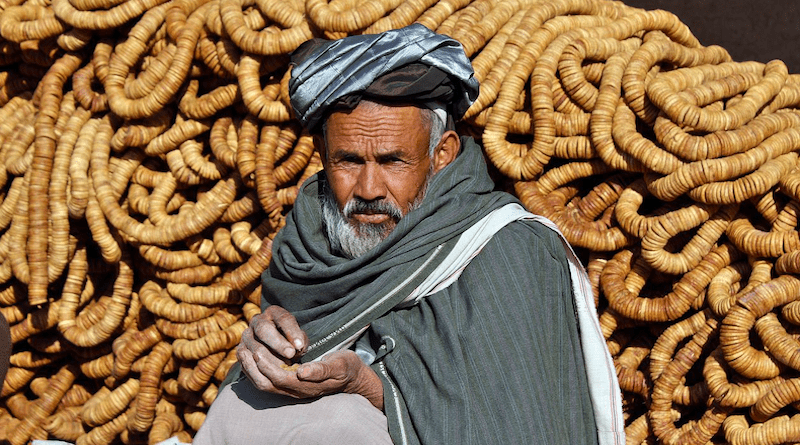Countering Afghan Refugees Propaganda – OpEd
Afghans have suffered more than 40 years of conflict, natural disasters, chronic poverty, food insecurity, COVID-19 pandemic and most recently a changeover in government authorities. The events leading up to Taliban’s takeover of Kabul in August 2021 intensified instability and violence in Afghanistan, which caused more human suffering and displacement.
While a majority of Afghans are internally displaced, at least 2.7 million are forced across borders and live as refugees across 98 different countries. Afghan refugees are the third-largest displaced population in the world after Syrian refugees and displaced Venezuelans. The vast majority of refugees from Afghanistan are living in Pakistan and Iran, which continue to host more than 1.3 million and 780,000 registered Afghan refugees respectively. Afghanistan’s displacement crisis is one of the largest and most protracted in UNHCR’s seven-decade history. We’re now seeing a third generation of Afghan children born in exile.
Since last few decades, there is a lot of mess in Afghanistan in political and economic domains. Great powers are fighting for their status quo in Afghanistan. But, Afghan people are suffering terribly in great power rivalry. The involvement of extra regional powers in Afghanistan has further complicated the governance in the country and affected dwindling Afghan economy. Instead of extending economic opportunities to the people, Afghan leaders are involved in corruption and political point scoring. This trend is having negative implication not only for Afghan people but other neighboring as well.
On the other hand, despite having limited economic resources, Pakistan has been welcoming Afghan refugees with open heart. Pakistan is facing economic upheavals in the aftermath of recent resurgence of terrorism and strategic developments in Afghanistan. However, the influx of Afghan refugees has created security dilemma in the country. As Afghan refugees in Pakistan are residing in almost all part of the country, they are involved in criminal activities across the country, which has created law and order issues for general masses. Majority of Afghan refugees are now under the scanner not only in Pakistan but other parts of the world as well due to their suspected activities in respective countries.
Blaming Afghan refugees for a surge in crime, Khyber Pakhtunkhwa province has placed restrictions on the movement of those who do not possess legal documents to stay in the country. Pakistan has requested Afghan government to tighten security near border areas to stem the tide of crime across the country.
It is evident that Afghan refugees are indulged in unlawful activities such as terrorism, kidnapping, robbing and looting, killings, and drugs trafficking as well. Many of the positivist criminologists, such as Beccaria and Wilson have identified that poverty could be the major root cause of the crime in the society and such nature of crimes could be prevented by providing better economic opportunities to the people. In the case of Quetta, people think that Afghan refugees’ involvement to the criminal activities was mainly because of the poor economic conditions.
There was a massive influx of Afghan refugees into Pakistan following the Soviet military intervention in Afghanistan in December 1979. An attempt has been made to analyze the political, ethnic, economic and social ramifications of the Afghan refugees on Pakistan. Among the consequences of the presence of Afghan refugees are:
- A heavy burden on Pakistan’s resources on account of sustaining 2.8 million Afghan refugees
- Friction between Afghan refugees and Pakistani population, due to land, employment, animal grazing-pasture and water-supply disputes
- A direct threat to Pakistan’s internal security and political stability, which is made evident by numerous violations of Pakistan’s western borders.
- The refugees in Pakistan will not return to their homes unless they are insured a safe and honorable life by the Afghan government.
In the recent past, Pakistan has been extending all possible facilities to Afghan people particularly in humanitarian domains. The leadership in Islamabad is keenly focused on enhancing people to people contacts between two states despite having some serious concerns regarding the suspected activities of Afghan refugees. Likewise, Pakistan has offered educational scholarships to Afghan students for higher education. Apart from this initiative, there are more projects in the pipeline to facilitate Afghan people. Similarly, Pakistan has recently opened an eye hospital in Kabul to provide medical facilities to the Afghan people and uplift the health sector of the country.
It is responsibility of Afghan authorities and international community to ensure the safe and sensible return of Afghan refugees back to their country. Pakistan has done it part to help the vulnerable Afghan people. But, now is the right time for Afghan government to take back their refugees as they are economically vulnerable not only for their own country but Pakistan as well.
Shaikh Moazam Khan is an Islamabad based expert of strategic affairs.

